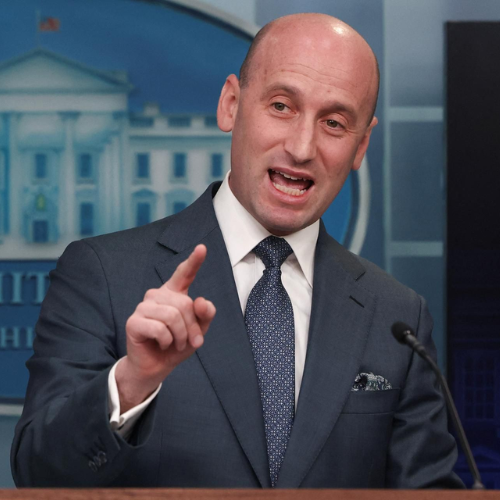Stephen Miller, a senior aide to U.S. President Donald Trump, has made strong claims that countries like South Korea, Japan, and the European Union have blocked American cars from entering their markets. The statement came as the U.S. administration defended its tough new taxes on imported cars, saying these steps are needed to protect American jobs and factories.
Miller warned that if things continued the way they are, the American car industry could vanish in just a few years. To stop that from happening, the U.S. has started charging a big 25 percent tax on cars that are brought in from other countries. Some car parts will also face similar taxes very soon, though companies that build cars inside the U.S. are getting a break on these new rules for the next two years.
At a press event, Miller explained the reason behind these tough measures. He said that countries like Japan, South Korea, and the nations of Europe do not allow American cars to be sold easily in their markets. According to him, this has created a huge trade gap, where these countries sell lots of cars to America but buy very few in return.
25% Import Tax Begins on Auto Parts; Experts Predict Factory Shifts and Rising Prices
Miller stressed that nations with similar wealth should have more balanced trade, especially in big industries like cars. He pointed out that it’s not fair for the U.S. to have such uneven car sales with these nations, saying the numbers just don’t add up if everyone is playing by the same rules.
American Jobs at Risk, Says Miller
Miller painted a worrying picture of what could happen if action isn’t taken now. He said that if foreign carmakers continue to flood the American market while blocking U.S. cars in their own countries, the entire American car industry could disappear. He emphasized that protecting this industry is not just about cars — it’s about saving the jobs of thousands of workers across the country.
He also made it clear that if companies from other countries want to sell their cars in the U.S. without paying extra taxes, they should build their factories inside the U.S. This way, more jobs would stay in America, and the economy would benefit directly.
“If we didn’t make these changes, there would soon be no U.S. car industry left,” Miller warned, underlining the seriousness of the situation. The message was straightforward: either foreign companies set up shop in the U.S., or they will face heavy taxes when selling their cars to American buyers.
Trump Makes Major Move to Ease Auto Tariffs Amid Industry Pressure
South Korea’s Big Stake in U.S. Auto Sales
South Korea, one of the countries mentioned, has already started talks with the U.S. to try and get relief from these tough new car taxes. And it’s easy to see why they’re concerned. Nearly half of South Korea’s car exports last year — worth about $34.7 billion — went straight to the U.S. This made the U.S. South Korea’s biggest market for selling cars abroad.
Big South Korean carmakers have been shipping hundreds of thousands of cars to the U.S. every year. For example, Hyundai Motor Group sent around 970,000 vehicles to American buyers last year. GM Korea, another major player, exported about 410,000 vehicles to the U.S. as well.
With such large numbers at stake, South Korea is eager to find a solution that keeps its strong car sales flowing into the U.S. market. However, the new rules set by the American government are clear: foreign companies must build more cars in the U.S. or face higher taxes at the border.
As trade talks continue, the world is watching to see how these claims and new rules will reshape the car industry on both sides.


